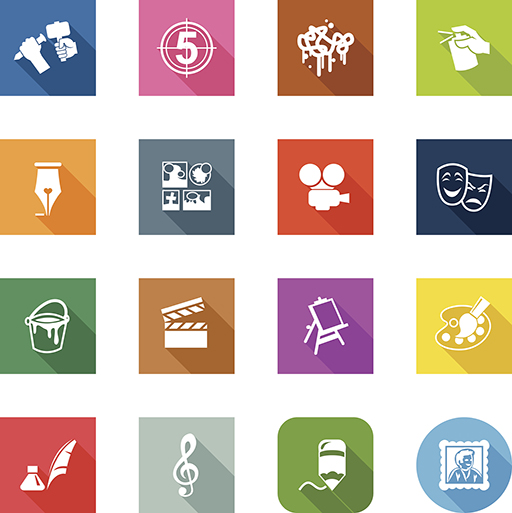2 What is a freelancer?
‘Freelancer’ is a commonly used term in the creative industries and describes someone who sells chunks of their time to different individuals or organisations, usually at a by-hour or by-day rate. Freelancers are often found in industries where short-term project work is common.

A survey of 700 creative freelancers conducted by the Creative Industries Federation (Easton and Cauldwell-French, 2017, p. 10) found that:
For some workers, freelancing is a choice, with benefits such as greater flexibility in working hours and conditions. However, for the majority of creative freelancers, it is the only way they can do their work, as the shape and type of many creative businesses mean there are not full-time staff positions available.
Some creative people feel wary about business and its associated terminology. Creative entrepreneur and author, David Parrish (2014) expands on this theme.
Some people regard creativity and business as being like oil and water – they just don’t mix. They think it’s a question of choosing between creativity or business.
However, Parrish rejects ‘the idea that business and creativity are incompatible opposites’. He believes that the most exciting creativity is:
the alchemy of blending apparent opposites. […] Successful creative entrepreneurs embrace both creativity and business. Perhaps they don’t use business jargon and maybe profit is not their primary aim. Sometimes they will proceed on a hunch, or put their success down to good luck, but there is nevertheless a method behind their apparent madness, whether they recognise it or not.
As a current FreelanceUK blog (no date) explains:
When you decide to become a freelancer, you will essentially sign up to be the owner of a very small, micro-sized business. This will mean that you will need to think of all aspects of starting and running a business, from marketing to business finances.
You might hear several other terms used to refer to someone who works for themselves, including:
- self-employed
- small business owner
- microbusiness owner
- solopreneur
- sole trader, and
- entrepreneur.
If you know any freelancers, ask them how they would describe themselves. Are there any other terms you could add to this list?
Box 1 Facts and figures
When you’re starting out, it’s likely that it’s just you in your business, which officially makes you a microbusiness.
Department for Business, Energy and Industrial Strategy (BEIS) data for 2020 shows that at the beginning of that year, 76% of the 6 million private sector businesses in the UK did not employ anyone aside from the owner (Barton, 2020). That means that there are more than 4.5 million other people like you, working on their own.
Focusing on the creative sector, the Creative Industries Federation (2017) states that out of more than 284,000 businesses in the creative industries, almost 95% of them are microbusinesses.
In fact, many of you will continue to work totally independently, or with only your immediate collaborators or partners, for several years. It might not be until much later that you need to re-evaluate your ‘microbusiness status’.
Now you know that you’re not alone, the next sections will give you an insight into the journeys and experiences of other creative freelancers. As a new freelancer, there are a number of ways that your career can develop. Some of you will be able to maintain a 100% freelance career, whereas others will either need or prefer to combine freelance work with other paid activities. This is known as a portfolio career. You’ll learn more about both options this week.
